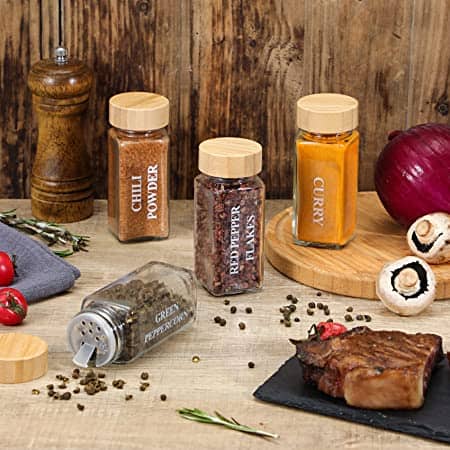Do you suffer from acid reflux? Have you been wondering what the best spices for acid reflux are? Are you concerned about the potential effects of spices on your acid reflux?
If you suffer from acid reflux, you know that the right spices can make or break a meal. Spices have been used for centuries to treat digestive problems, but not all offer the same benefits regarding reducing stomach acidity. Some spices increase the production of gastric acids in your system, making them worse than useless if you’re dealing with GERD or other forms of chronic heartburn.
On the flip side, plenty of herbs and seasonings work wonders at soothing an inflamed esophagus and calming down overactive digestion processes. We’ll cover all these options in detail below!
What is Acid Reflux?
Acid reflux, also known as gastroesophageal reflux disease (GERD), occurs when stomach acid flows back up into the esophagus. This causes a burning sensation in your throat and chest, which is why it’s often referred to as heartburn. It is generally a result of poor dietary habits or untended medical conditions such as ulcerative colitis, Crohn’s disease, or hiatal hernia.
How Spices Can Trigger Acid Reflux
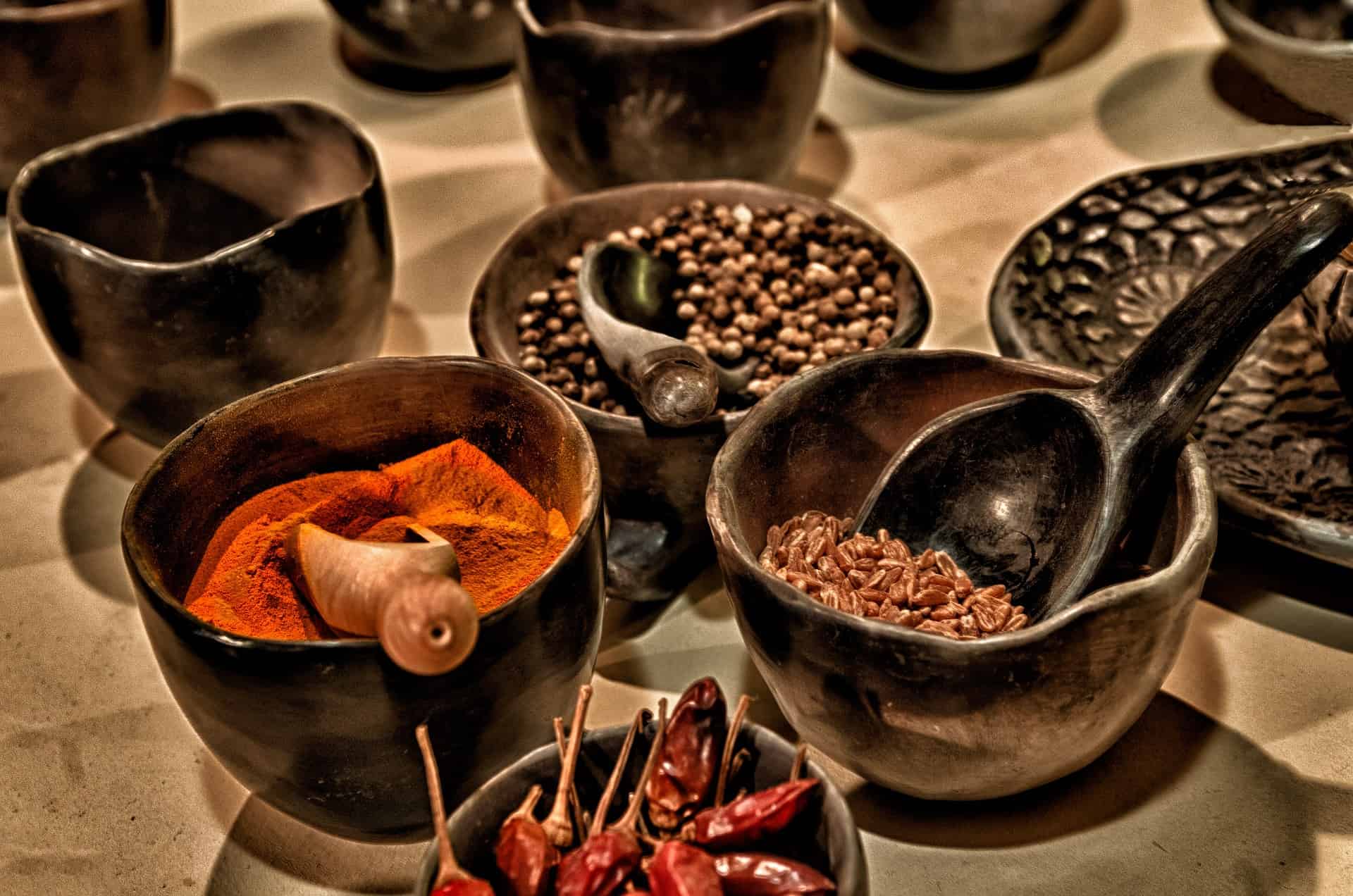
Do you ever find yourself experiencing an uncomfortable burning sensation in your chest after consuming a spicy meal? If so, you might be dealing with acid reflux. Many spices can trigger this condition due to their effects on the digestive system.
Depending on the severity of your condition, your doctor or nutritionist may have suggested to you that spicy foods can trigger a flare-up and should be avoided. This is because many spices are considered to be highly acidic – thus irritating existing acid reflux.
Additionally, spicy dishes are usually cooked with oil or butter, which can make them more likely to cause heartburn because they take longer to digest. On top of that, spicy foods often contain high levels of sodium, which increases fluid retention in the body – making it harder for your body to clear away the extra acids in your stomach.
Best Spices for Acid Reflux: The Acid Reflux Symptoms

Acid reflux can be an uncomfortable and sometimes painful condition. Here are some of the main symptoms of acid reflux so you can identify them if they occur.
📍Heartburn
Heartburn is the most common symptom associated with acid reflux, described as a burning sensation in the chest or throat. A sour or bitter taste in your mouth can sometimes accompany this feeling.
Heartburn symptoms usually occur after eating but can also happen when lying down or bending over. The pain may last several minutes or hours and worsens when you bend over or lie down.
📍Chest Pain
Another common symptom of acid reflux is chest pain that feels like it’s coming from behind the breastbone. The pain may be sharp and stabbing and can come on suddenly or gradually worsen over time. Like heartburn, this type of discomfort may worsen when you lie down, bend over, or eat certain foods such as spicy dishes.
📍Difficulty Swallowing
If you are having difficulty swallowing food, this could be a sign of acid reflux. You may feel like food or liquid is stuck in your throat and find it difficult to swallow even liquids – a condition known as dysphagia.
You should see your doctor if you experience difficulty swallowing for more than a week. It could indicate a more serious underlying health condition, such as an esophageal tumor or narrowing of the esophagus (esophageal stricture).
📍Regurgitation
Regurgitation is another common symptom associated with acid reflux, where stomach contents are brought up into the mouth resulting in an unpleasant acidic taste and often a feeling of nausea. This can occur frequently or intermittently throughout the day and night, depending on your condition’s severity.
It’s important to remember that regurgitation alone doesn’t necessarily mean you have acid reflux disorder; you must first rule out other conditions, such as hiatal hernia, before making an accurate diagnosis.
Acid reflux symptoms can vary greatly from person to person depending on their individual health history and lifestyle factors such as diet, exercise routine, alcohol consumption, etc. Therefore, if any of these symptoms sound familiar, then it’s best to speak with your doctor. Discuss further testing options so they can implement an appropriate treatment plan immediately – don’t delay!
10 Spices To Avoid If You Have Acid Reflux
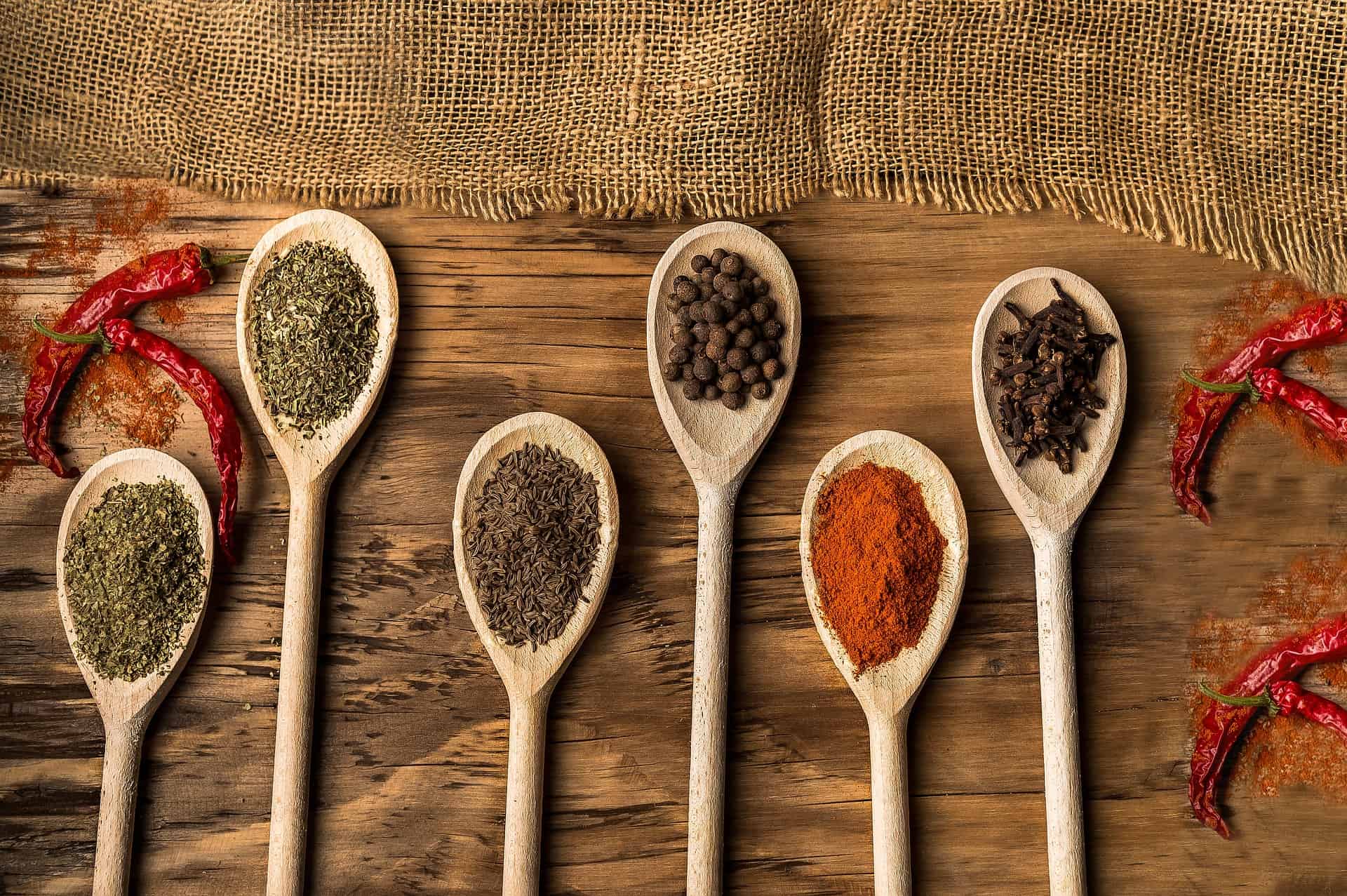
When it comes to choosing spices for acid reflux, there are certain ones that you should definitely avoid. To help you make wise choices in the kitchen, here’s a list of 10 spices to avoid if you have acid reflux:
① Cayenne Pepper
Cayenne pepper is known for its heat. But did you know that too much of it can worsen your acid reflux? It’s classified as a “hot” spice that increases stomach acid production, which in turn leads to more intense heartburn for those with existing issues. If you’re looking for something spicy, opt for milder alternatives.
② Chili Powder
Chili powder contains capsaicin – an ingredient found in chili peppers. Therefore, it can be very irritating for some people with sensitive stomachs. This is especially true for people who suffer from acid reflux because capsaicin increases stomach acids, leading to indigestion and other issues.
③ Curry Powder
Curry powder is a blend of various spices like turmeric, cumin, coriander, and red pepper – all known triggers for acid reflux due to their properties as digestive stimulants. While the curry may be delicious in smaller amounts on occasion, it’s best avoided if you have frequent issues with heartburn or GERD.
④ Garlic
It may come as a surprise to some, but garlic has been linked to worsening symptoms of acid reflux. This is thought to be because of garlic’s pungent odor and strong flavor profile that can irritate the stomach by increasing levels of gastric acids and bile salts — both of which can lead to more intense heartburn when present in high concentrations.
⑤ Mustard
Mustard isn’t always thought about when considering foods that trigger heartburn symptoms (it doesn’t seem all that acidic!), but its high level of ammonium chloride makes it one of the biggest culprits out there! Too much mustard will produce excess stomach gases, causing uncomfortable bloating and pressure within the abdomen that could eventually exacerbate existing acid reflux symptoms.
⑥ Onion
Onions contain high levels of sulfur-containing compounds like thiosulfinates —which increase stomach acids, making them another food item best avoided or limited if you suffer from GERD or other forms of acid reflux. Onions are also often difficult to digest in large quantities, so add small amounts to your dishes if needed!
⑦ Paprika
Paprika has long been used as a flavoring agent in many dishes. But unfortunately, it is highly acidic, which can worsen any existing problems with your digestive system, including kicking off more intense bouts of gastric distress due to its spicy nature. Opt for milder alternatives like garlic powder instead whenever possible!
⑧ Saffron
Like many other spices on this list, saffron also has properties that stimulate gastric secretion — resulting in increased levels of stomach acids which can cause further irritation when present at higher levels than usual. Try using milder seasonings or herbs as alternative flavorings instead!
⑨ Cloves
Clove contains eugenol, which may cause acid reflux problems to flare up when ingested. Spicy food tends to aggravate the situation, so avoiding cloves and other spices is better if you suffer from acid reflux. It might sound like a lot of sacrifices right now. However, reducing your intake of these spices could help you get rid of the symptoms more effectively in the long run!
⑩ Nutmeg
Although nutmeg can give meals a tasty and complex flavor, it can have some detrimental effects if you have acid reflux. For one thing, nutmeg is considered an irritant for the digestive system and can trigger certain symptoms associated with acid reflux, such as heartburn and indigestion. It has also been known to relax the lower esophageal sphincter responsible for keeping stomach acids down in the stomach where they belong.
The Best Spices For Acid Reflux
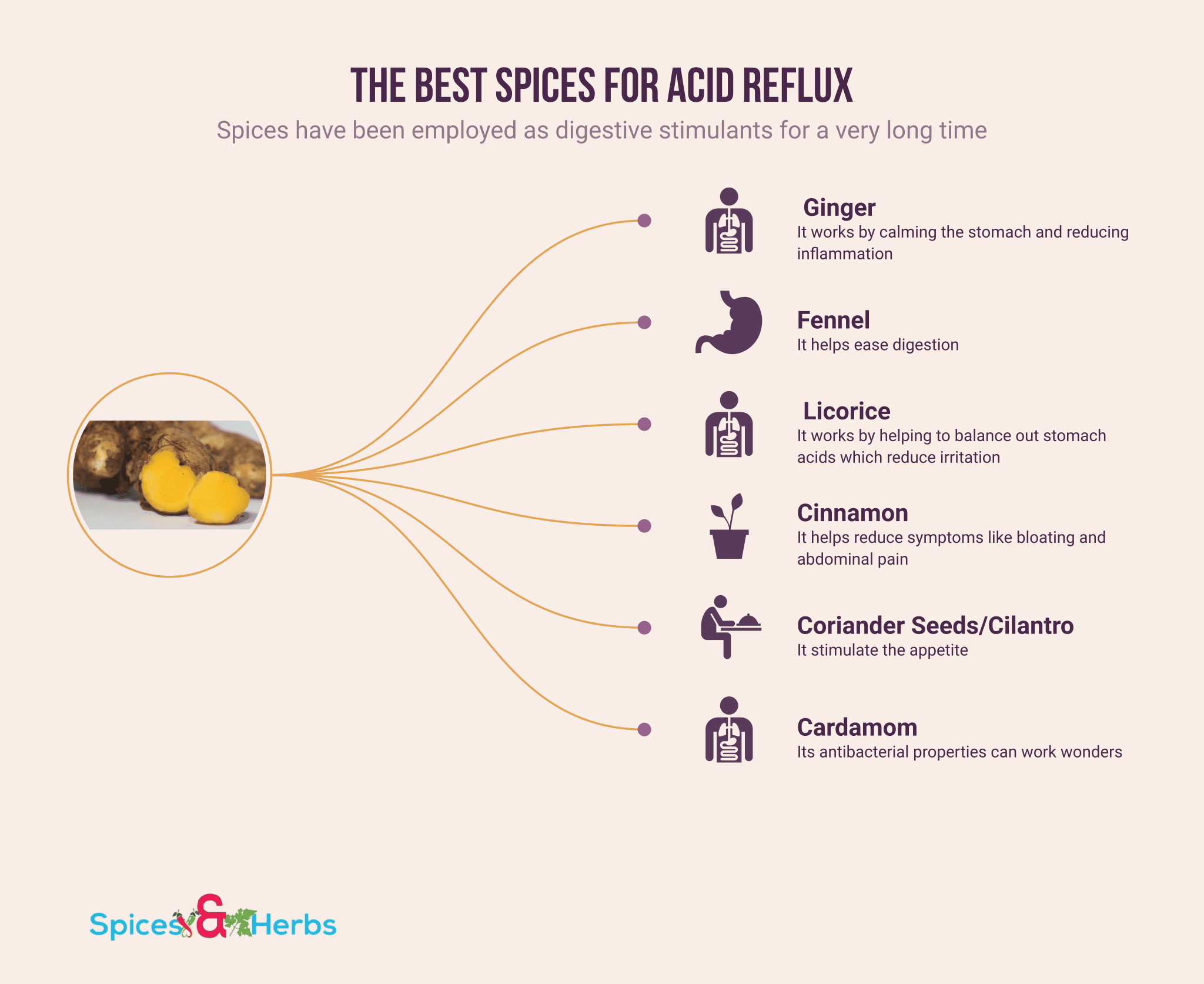
Spices have been employed as digestive stimulants for a very long time. If you suffer from acid reflux, here are some spices that may be beneficial for your condition:
✅ Ginger

Ginger has been used for centuries to treat many different ailments. These days, it’s mostly known as an effective natural remedy for nausea and other digestive issues like acid reflux. It works by calming the stomach and reducing inflammation in the gut lining. This, in turn, can help reduce the symptoms of acid reflux, such as heartburn and indigestion.
To use ginger as a remedy for acid reflux, try adding fresh ginger slices or grated ginger root to smoothies, soups, salads, and other meals. You can also steep the freshly grated ginger root in hot water for a soothing cup of ginger tea.
✅ Fennel

Fennel is a popular herb used in various cuisines worldwide for its unique flavor profile and numerous health benefits. One of those benefits is that it helps ease digestion, making it an excellent choice for people who suffer from acid reflux or GERD. Not only does fennel help reduce inflammation in the stomach lining, but it also helps relax muscles in the digestive tract, increasing blood flow to improve overall digestion.
Fennel tea is one way to enjoy these aromatic seeds. Simply steep two teaspoonfuls of fennel seeds in hot water for several minutes before enjoying hot or cold. Fennel seeds can also be added to grain dishes, salads, or even sprinkled on top of roasted vegetables for an extra kick of flavor!
✅ Licorice
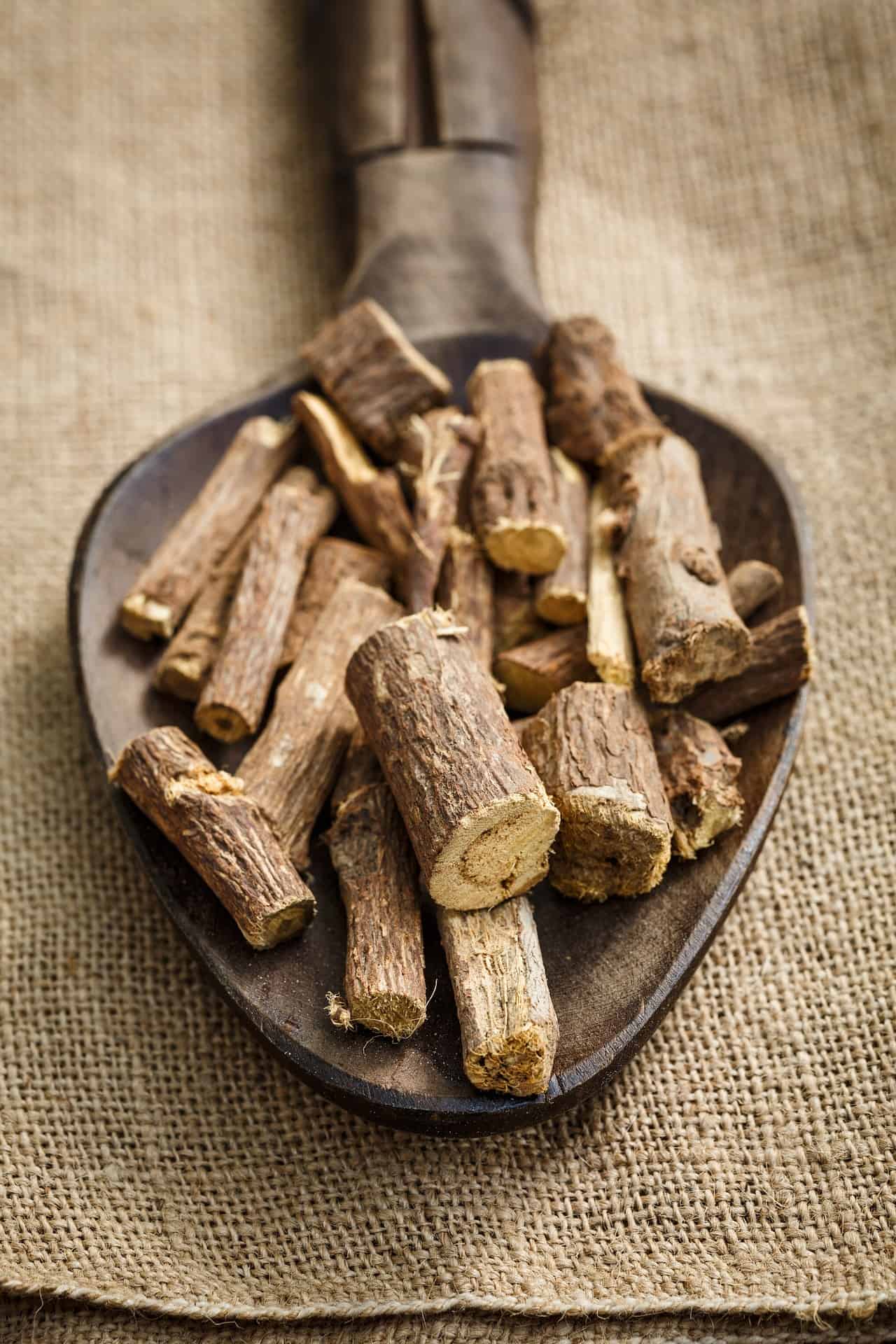
Licorice root is another effective remedy for acid reflux due to its anti-inflammatory properties. It works by helping to balance out stomach acids which reduce irritation caused by acidic foods or drinks consumed before developing any discomfort associated with GERD.
Licorice root also encourages digestion by stimulating the production of mucin. A substance found naturally within our bodies that helps protect against various infections and irritants, such as bacteria or toxins. This could lead to more serious health problems if left untreated.
✅ Cinnamon

Cinnamon is one of the most popular spices used around the world, not just for its flavor but also its medicinal properties–including relief from acid reflux! Cinnamon contains cinnamaldehyde which has powerful anti-inflammatory effects on GI (gastrointestinal) tissues.
It helps reduce symptoms associated with GERD, like bloating, abdominal pain, burning sensations after eating meals, etc. Additionally, cinnamon aids digestion by increasing bile production. Thus helping break down fats better, allowing them to pass through our intestines much easier!
✅ Coriander Seeds/Cilantro
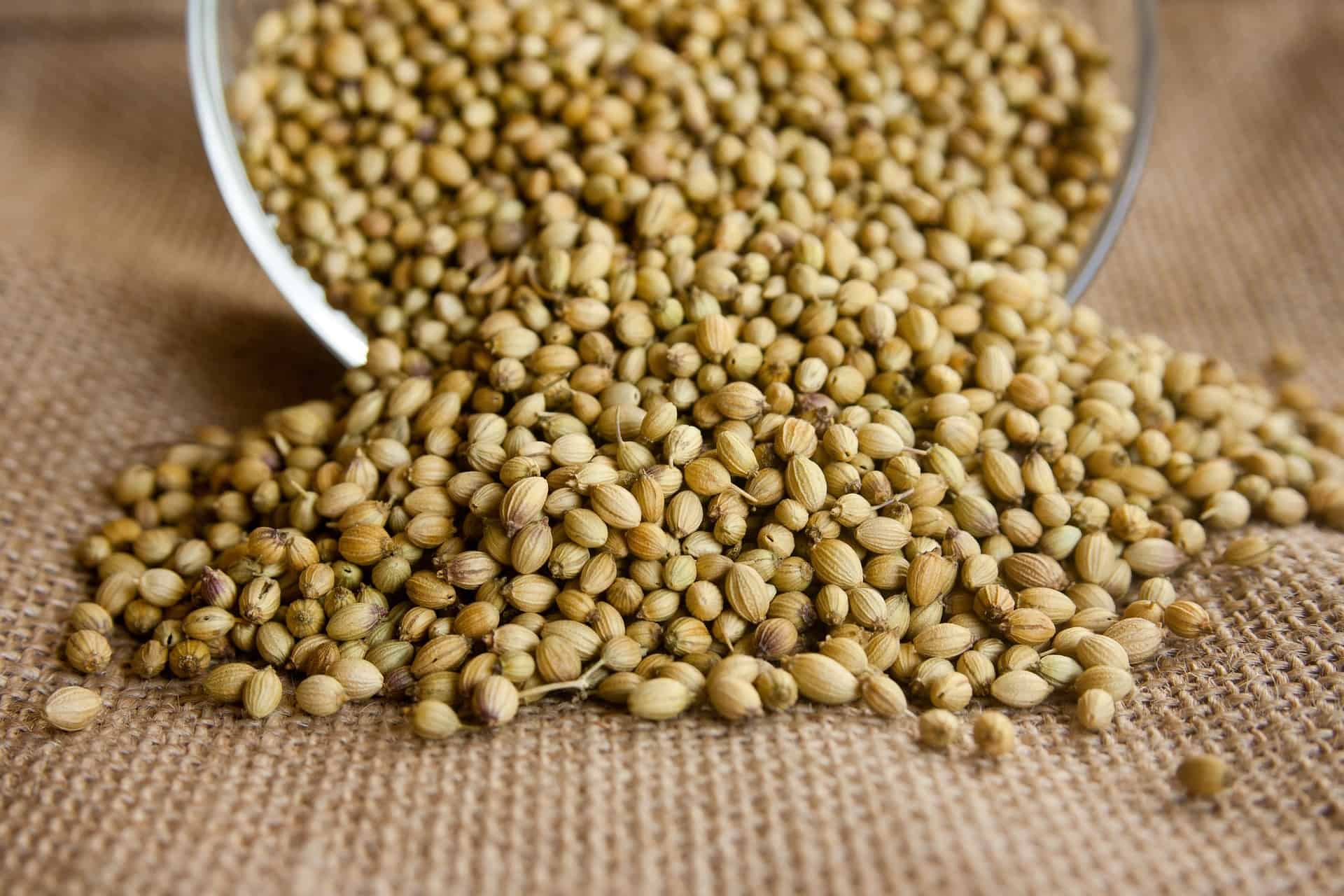
Coriander Seeds, or Cilantro as it is sometimes called, can be an amazing aid to your digestion! This wonderful herb can help with bloating, constipation, and gas and stimulate the appetite. The best way to get the most of its digestive benefits is to steep the seeds in boiling water for 10-15 minutes and then drink the concoction. It may not taste great but trust me; it’s worth it!
If you want a tastier experience, you can add some honey and lime juice. Another way to use coriander seeds is by adding them to your food – whether cooking, baking, or making a salad. Just make sure to ground them up first so that they can release their positive stomach-friendly compounds.
✅ Cardamom
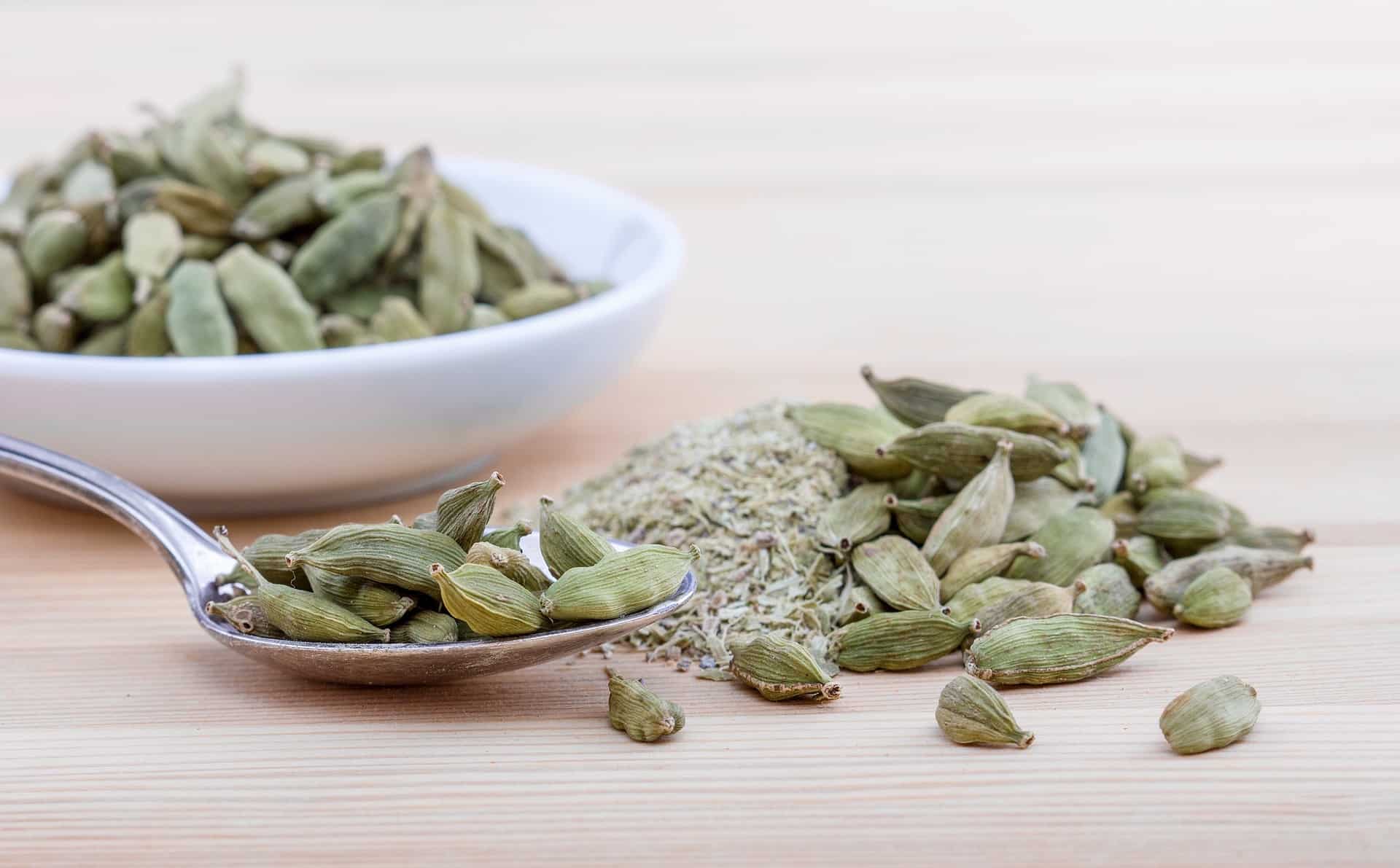
Did you know cardamom is great for digestion and acid reflux? It’s one of those medicinal spices used for centuries by people in the Middle East and India. Not only does it add flavor to dishes, but its antibacterial properties can work wonders! Especially when used as a tea – add some ground cardamom to hot water and drink slowly in sips.
You’ll feel better in no time – the warming sensation of cardamom helps relax the stomach muscles, which soothes heartburn and makes digesting food much easier.
Tips and Tricks For Relieving Acid Reflux

Although herbs and spices can provide relief from acid reflux, there are other lifestyle changes you may want to consider to help manage the condition. Here are a few tips and tricks that may help keep your stomach feeling better:
➣ Make Lifestyle Changes
Making key lifestyle changes can go a long way in reducing the discomfort associated with acid reflux. Eating smaller, more frequent meals, avoiding fatty or greasy foods, losing weight if needed, and avoiding tight-fitting clothing can all help.
It’s also important to avoid eating within two hours of lying down for a nap or going to sleep, as this can increase the chances of experiencing acid reflux symptoms.
➣ Avoid Trigger Foods
Certain foods can trigger indigestion and make acid reflux worse, such as caffeine, alcohol, tomatoes, garlic, onions, fatty foods, spicy foods, carbonated drinks, and fried dishes. Staying away from these types of food will help keep those irritating symptoms at bay.
It would be best to be mindful of how much citrus fruit you consume since they may cause stomach acids to rise, which could aggravate your heartburn.
➣ Elevate Your Bed
One simple trick that can ease nighttime heartburn is by propping up the head of your bed four to six inches with some bricks or wooden blocks so that gravity helps keep stomach acids where they belong —in your stomach! This may not work for everybody, but it’s worth a try if changing your diet isn’t cutting it anymore.
➣ Stay Hydrated
Staying hydrated helps the gastrointestinal tract produce more bicarbonate, an alkaline substance that neutralizes excess acids in the stomach that could cause acid reflux or heartburn. So try drinking 8-10 glasses of water daily to help keep digestive problems at bay!
➣ Try Herbal Remedies
If lifestyle changes aren’t enough to control your acid reflux symptoms, then you may want to try using herbal remedies like ginger root extract or chamomile tea. Both are said to provide relief from indigestion and other gastrointestinal problems without causing any harmful side effects like many medications do on occasion!
Frequently Asked Questions
Q: What is the best GERD diet?
If you are managing GERD and looking for a diet plan that works, you’re probably feeling overwhelmed by the range of opinions out there. The reality is that different nutrition approaches work for different people. So, it’s important to evaluate your own dietary needs and goals to find the best acid reflux diet for you. It’s always wise to consult with your doctor or a qualified nutritionist if you need help navigating the journey toward better health. Meanwhile, stock up on the basics like whole-grain foods, fruits, veggies, healthy proteins, and non-fat dairy products. These are essential building blocks for good nutrition regardless of what type of GERD diet ultimately fits your lifestyle.
Q: Which healthy fat sources can help reduce acid reflux?
Healthy fats like avocados, olive oil, and coconut butter are all great options. Avocados are especially beneficial because they contain several nutrients in addition to healthy fat. On the other hand, olive oil helps “coat” the walls of the stomach, helping reduce irritation. Coconut butter may provide natural support to help digestion by working as an alkaline base in the body. So if you’ve been looking for ways to relieve acid reflux naturally, consider adding some of these healthful grocery items to your next shopping list.
Q: How do herbal teas help in reducing acid reflux?
Tea’s nourishing components help to naturally calm the digestive tract and replace acidic meals in your diet. Moreover, herbal teas have anti-inflammatory properties and gentle-coating ingredients. It can aid with some of the uncomfortable situations brought on by acid reflux. Drinking a few cups of herbal tea daily helps promote healing and regulate your digestive system. Also, as these teas frequently offer a delectable flavor and aromatic sensation, they have developed into a pleasant alternative to medication or significant dietary adjustments to relieve heartburn.
Q: What should I do If I have an upset stomach after eating spices?
First and foremost, drink plenty of fluids to keep your body hydrated. This will help flush out whatever caused the upset stomach in the first place. Try sipping on peppermint tea or ginger ale for a quick fix. You can also try eating an apple or two to turn off the fiery feeling coming from your stomach. Lastly, getting some fresh air for a bit of exercise or a walk can help relieve any stress that might be contributing to it as well.
Q: What are the high-fat foods that can trigger acid reflux?
High-fat items like fried chicken, chips and French fries, burgers, and whole-fat dairy products can trigger a burning stomach sensation associated with acid reflux. Unfortunately for fried food lovers everywhere, deep-fried items can exacerbate the condition significantly as oils used in frying are simply too rich to be broken down easily. The best approach is to avoid high fat foods altogether or enjoy them in moderation – if your stomach can handle it.
Final Words
You can occasionally find the solution in your kitchen cabinet for minimizing acid reflux. Ginger, cumin, and cardamom are a few spices that effectively ease heartburn symptoms. Garlic, chilies, curry powder, and pepper, among other spices, can worsen the illness. The good news is that adding a little bit more flavor to your food may be the answer you’re looking for. Just stay away from the worst offenders and look for the best spices for treating acid reflux symptoms.

